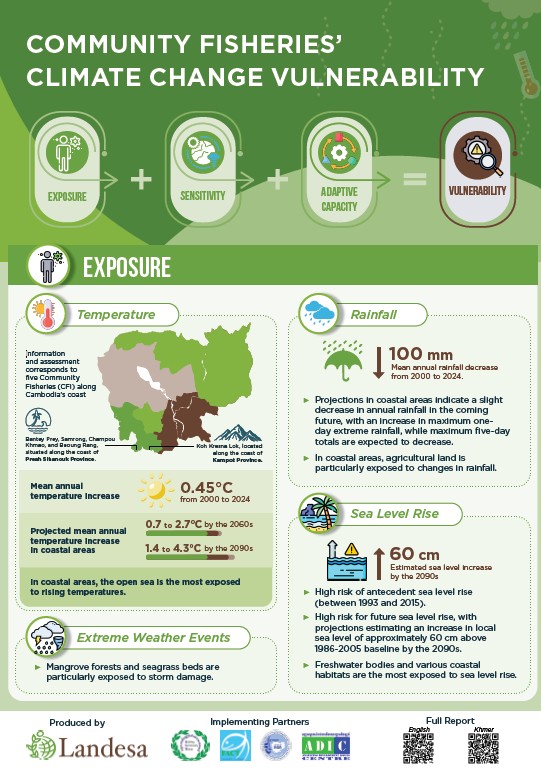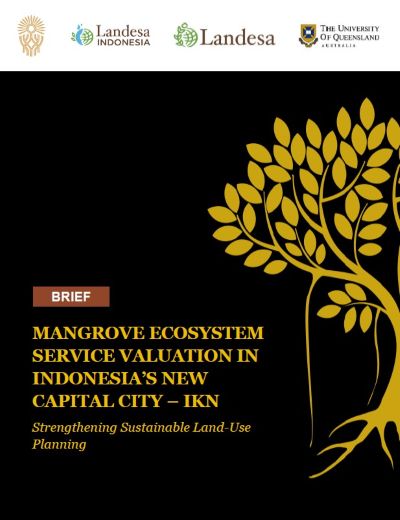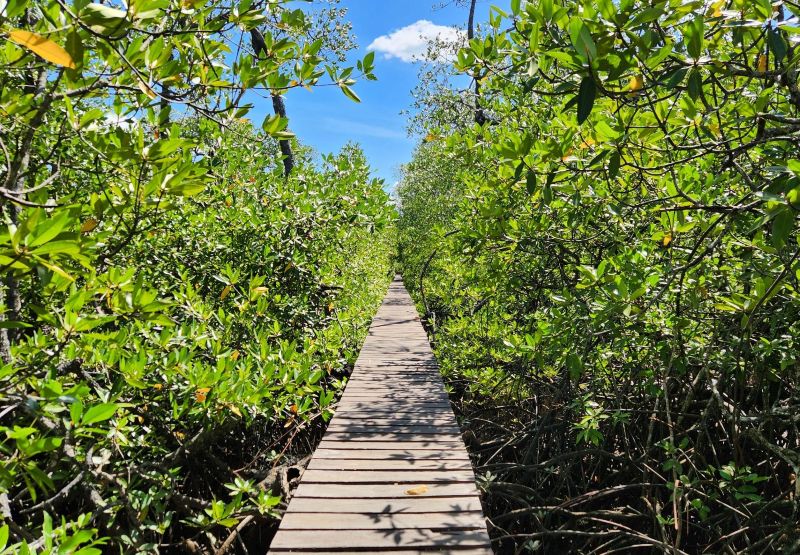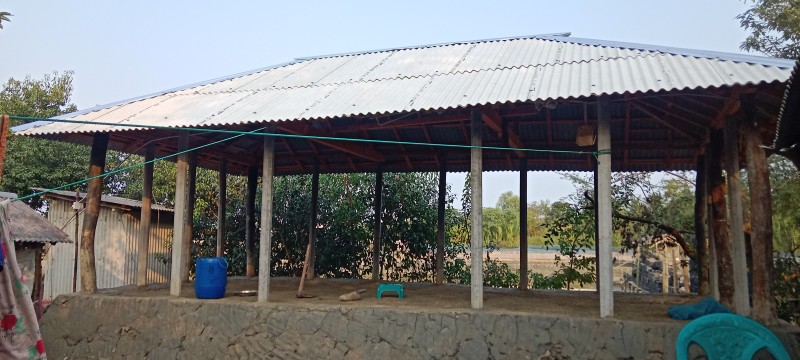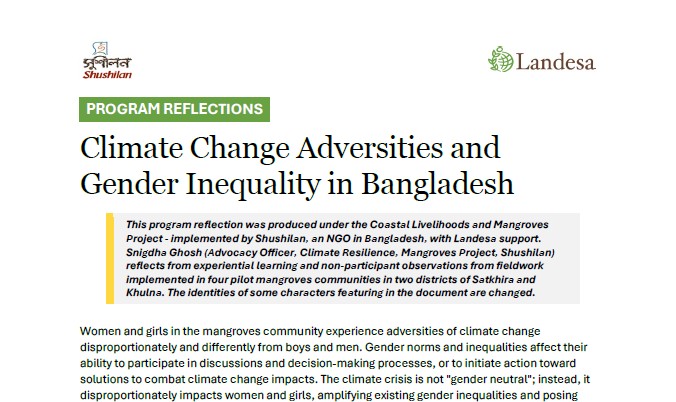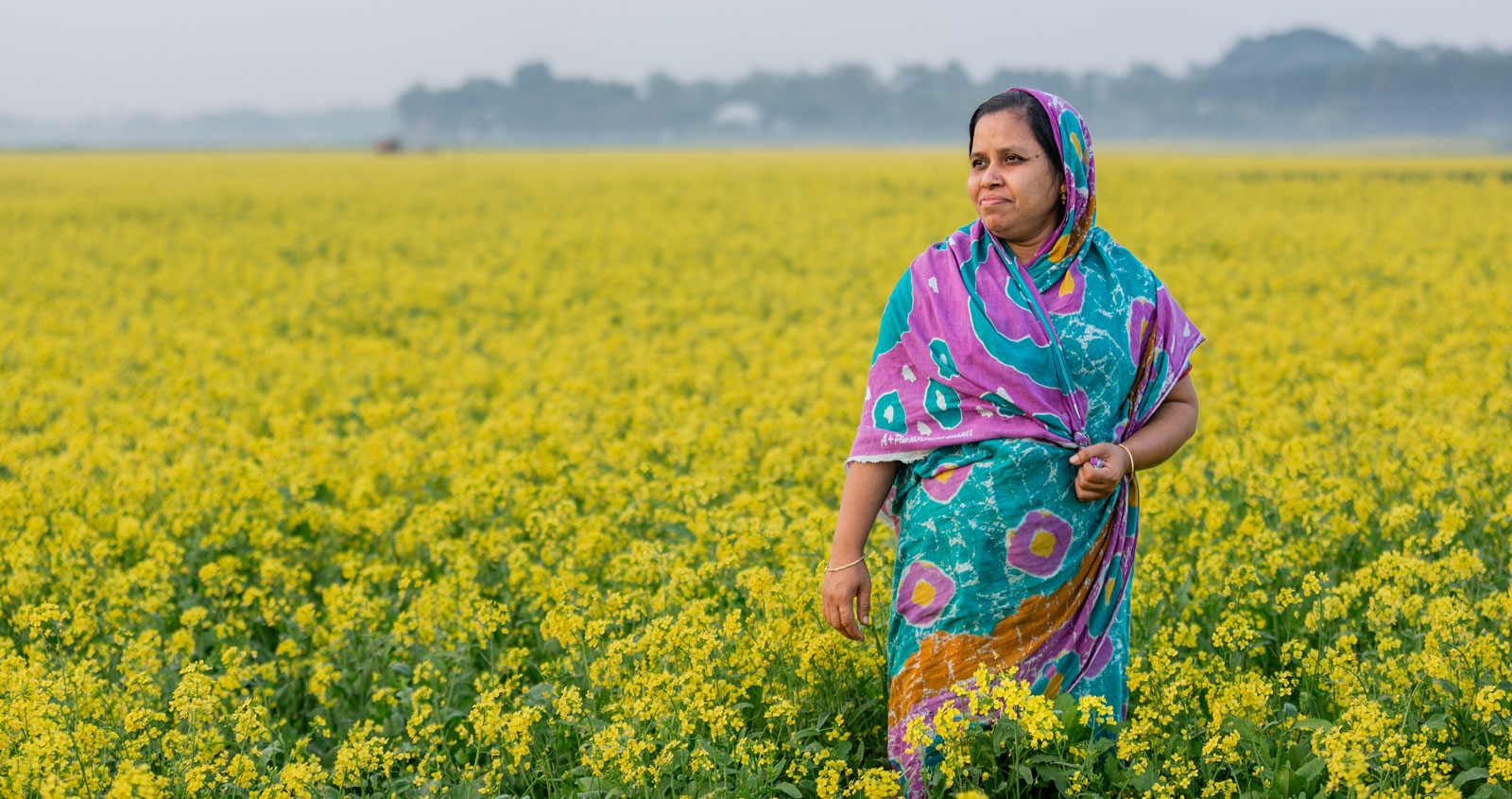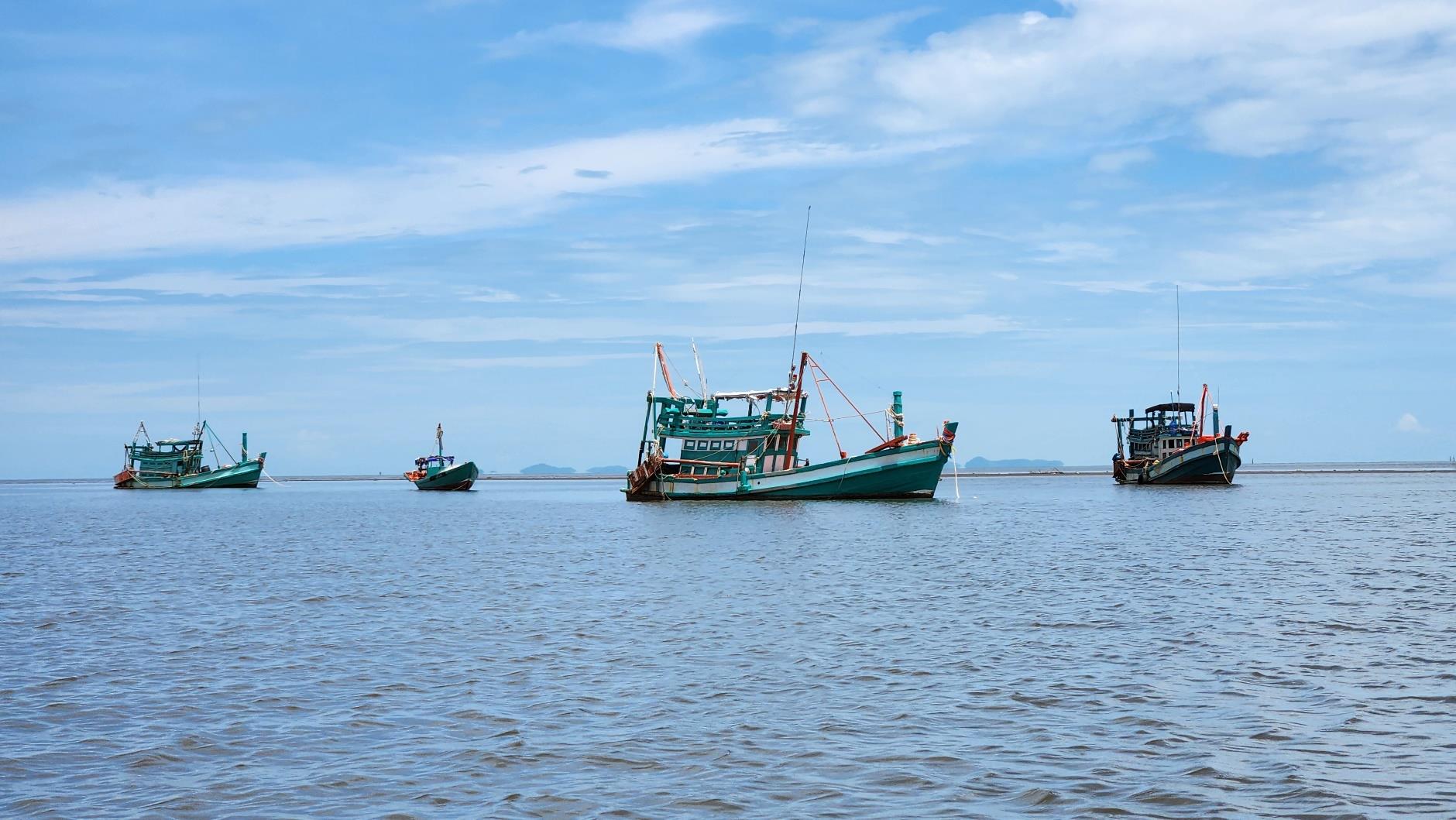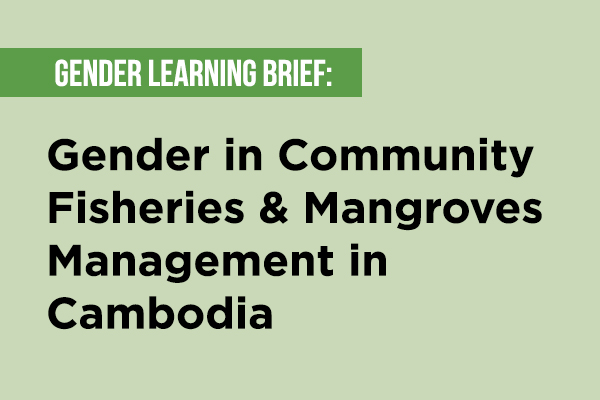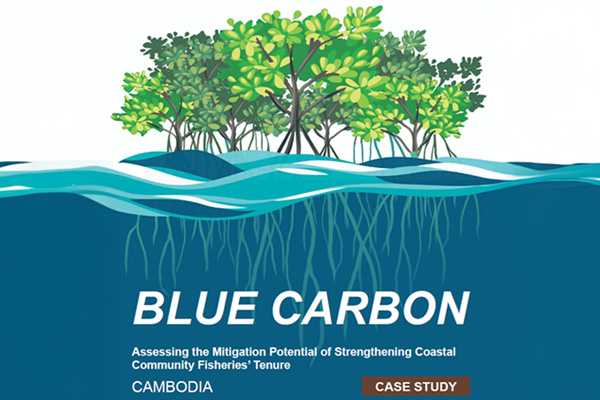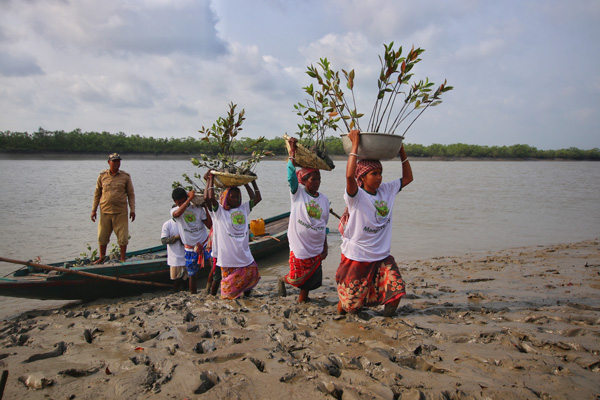Resources
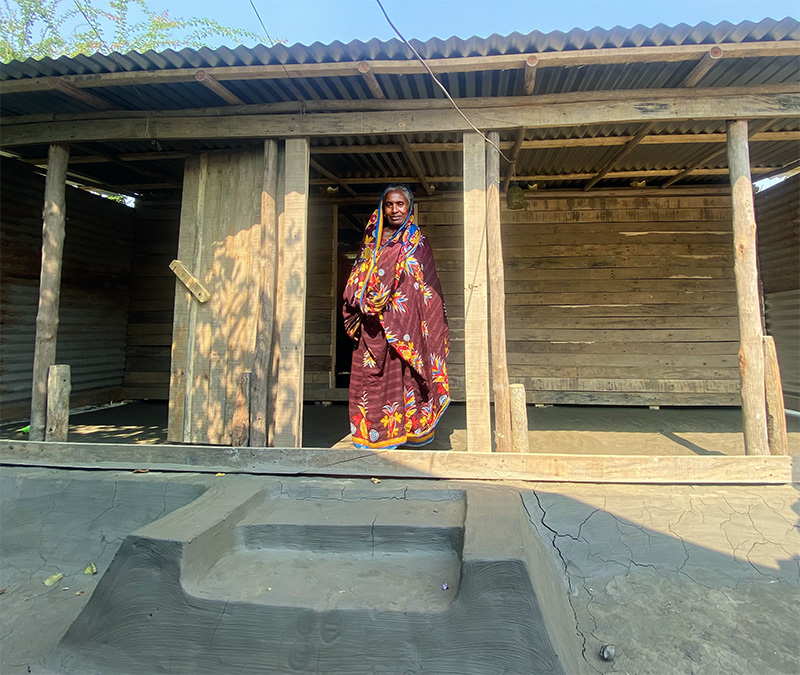
Featured resource
These infographics reflect Landesa’s findings from the Community Fisheries Climate Change Vulnerability Assessment report and were developed as primary tools for raising awareness through educational events conducted with Community Fishery members in Cambodia.
This brief highlights how recognizing and integrating the ecosystem services of mangroves into planning decisions—complemented by conservation efforts and sustainable resource use through strengthened tenure rights—is essential to promoting sustainable land use in Indonesia’s intended new capital city.
Landesa’s new study demonstrates how Indonesia’s intended new capital city can showcase integrated and inclusive tenure security and coastal management that balance urban development with mangrove ecosystem conservation. The study reveals the feasibility of implementing Payment for Ecosystem Services and proposes integrating ecosystem service economics with the land certification framework in the country, pioneering gender-responsive ecosystem service rights certification.
After decades without secure shelter, Naima and her family in Bangladesh’s Sundarbans gained legal access to land through a government lease program after attending a training supported by Shushilan and Landesa. They are now building a permanent home and planting a garden—laying the groundwork for a more stable future.
This program reflection from the Coastal Livelihoods and Mangroves Project explores how gender norms shape women’s and girls’ experiences of climate change in Bangladesh’s coastal communities. Drawing on fieldwork in Satkhira and Khulna districts, Shushilan’s Snigdha Ghosh highlights how unequal access to forest resources and mobility restrictions limit women’s participation in climate resilience efforts—reinforcing vulnerabilities and increasing the risk of gender-based violence. The insights underscore the need for gender-sensitive climate action that centers the voices and rights of women and girls.
A new Landesa report explores the interconnectedness of women’s land rights, climate action, and the Women, Peace & Security (WPS) agenda. The report presents a novel conceptual model and case studies to illustrate how women’s land rights, climate action, and WPS can support and influence one another.
A new Landesa report provides insights about the climate change vulnerability of Cambodia’s coastal Community Fisheries. The report seeks to provide key insights to enhance community members’ understanding of their susceptibility to climate change and highlight the importance of enacting plans to strengthen their resilience.
This Learning Brief, co-authored with Parliamentary Centre of Asia, highlights findings from a baseline survey and qualitative assessments Landesa’s local partners carried out in five Community Fisheries (CFis) in Cambodia that are part of a Coastal Livelihoods and Mangroves project. The brief describes gender dynamics in CFi participation and management, notes root causes of inequities related to social norms and local beliefs, and provides insights into effective interventions and pathways for strengthening CFis, livelihoods, and mangrove ecosystem health through gender equality.
Blue Carbon: Assessing the Mitigation Potential of Strengthening Coastal Community Fisheries’ Tenure
A new Landesa report shows how strengthening local rights to manage coastal resources in Cambodia can protect livelihoods, restore mangrove forests, and fight climate change. Many community fishery organizations face challenges like unclear boundaries and limited control over their resources, putting both ecosystems and livelihoods at risk. This report shares findings from carbon studies at two pilot sites, highlighting how strengthening land rights can help expand Cambodia’s efforts to reduce carbon emissions and meet its climate goals.
Over 70 million people depend on the mangrove forests in the Bay of Bengal and Southeast Asia. Using a regional and collaborative approach, Landesa is strengthening their coastal land tenure rights through an ambitious program that will sustain livelihoods, protect mangrove forests, and mitigate climate change. Learn more about this project.
